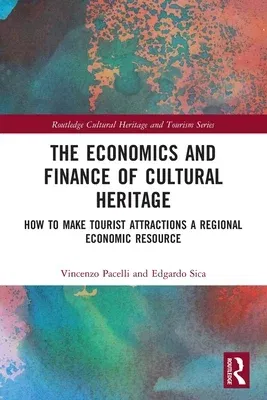Vincenzo Pacelli
(Author)The Economics and Finance of Cultural Heritage: How to Make Tourist Attractions a Regional Economic ResourcePaperback, 29 April 2022

Qty
1
Turbo
Ships in 2 - 3 days
Only 2 left
Free Delivery
Cash on Delivery
15 Days
Free Returns
Secure Checkout

Part of Series
Routledge Cultural Heritage and Tourism
Print Length
150 pages
Language
English
Publisher
Routledge
Date Published
29 Apr 2022
ISBN-10
0367524449
ISBN-13
9780367524449
Description
Product Details
Authors:
Book Format:
Paperback
Country of Origin:
US
Date Published:
29 April 2022
Dimensions:
23.39 x
15.6 x
0.86 cm
ISBN-10:
0367524449
ISBN-13:
9780367524449
Language:
English
Location:
Oxford
Pages:
150
Publisher:
Weight:
231.33 gm